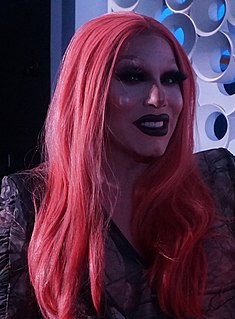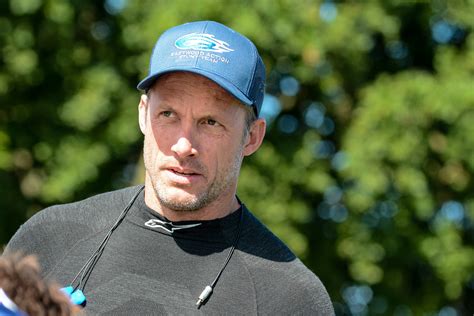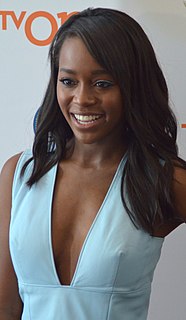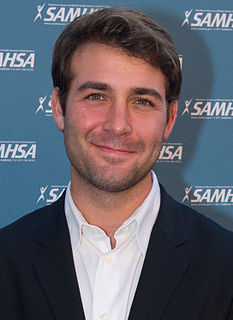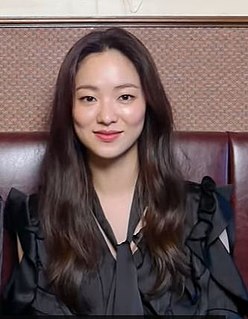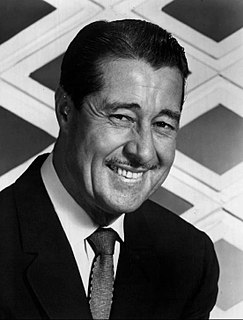A Quote by Adrienne C. Moore
When you do television, you're filming out of sequence sometimes. You have to ground yourself very quickly in the character and in the work and in the words. I think theater allowed me that sort of sharp, quick focus to do that.
Related Quotes
Then, at age 20, I discovered theater sort of by accident. Quite quickly, theater became more important to me than music. I began to realize that maybe my talents as a musician were quite limited, or had a ceiling to them, whereas acting seemed to sort of stretch before me. I got very passionate about it very quickly.
I know that actors and actresses have a great reputation for being very, very selfish, and in some cases, that's very true. But in the theater I find it doesn't help you to be selfish. You sort of have to be selfless in the theater, and the more selfless you are - that doesn't mean don't take care of yourself - but the more you sort of surrender to the work, I find, the better the work is. That's just my experience.
Variety is very, very good. Going from medium to medium, if you get the chance to do it, from theater to television to film, which are all distinctly different, keeps me sharp. What works in one doesn't work in the other, and you have to be looking for the truth of the performance, whatever way that medium might demand.
The worst thing that can happen is when you have gone weeks and months into elaborate sequences and the storyline of the film changes and you find out they don't need it. Sometimes you don't shoot those sequences, or they have been shot and then get edited out of the sequence you've shot gets changed and needs to be redone. That can be hard. It's not heartbreaking, but you do tend to think, "Och, all that work and effort." But that's filming, you know? You put all of these modular things into the pot, and sometimes they don't all get used.
If you're doing an indie and you have time, sometimes you can do take after take after take, but if you're working in television on that filming schedule, you don't always have the time to do that. You learn very quickly, I think, how essential it is to come in with the strongest choice that you have.
I think film is a world of directors. Theater is a world of actors. Or, theater is for actors as cinema is for directors. I started in theater. Filming is as complete as directing film. In theater, you are there, you have a character, you have a play, you have a light, you have a set, you have an audience, and you're in control, and every night is different depending on you and the relationship with the other actors. It's as simple as that. So, you are given all the tools.
When I would knock about the town in London, I was doing it with my head down, walking very quickly and it had become the norm for me because I'm recognized there. And people are not unkind but occasionally there's a sort of British who do you think you are sort of, I don't really think I'm anybody. I just go about my normal day. But sometimes you're faced with that.
You shoot this and it always has something of yourself - sometimes it's more and sometimes it's less. I think after the shooting it depends on who your character is. You definitely learn something about yourself, or you get to know sides that you knew you had, but you had never activated or triggered in a way that allowed you to let them out. Bad and good, all of this is in all of us. But you definitely meet another side or a quarter or ten percent of yourself that you had an idea of, but never really knew about.

